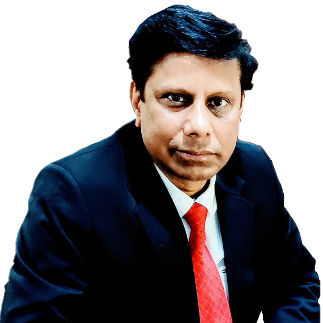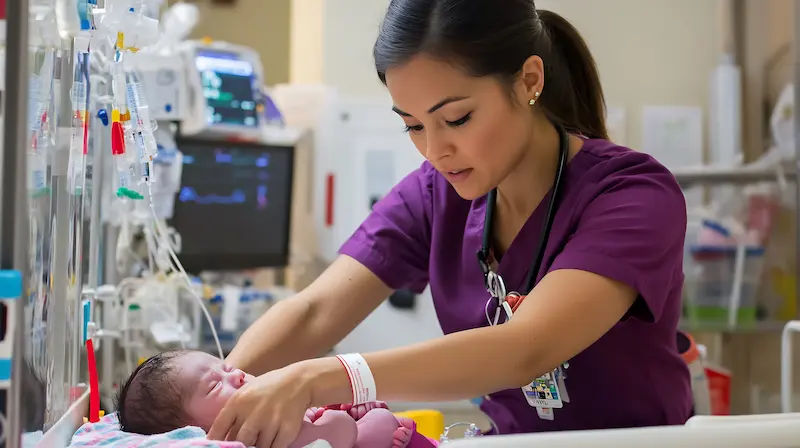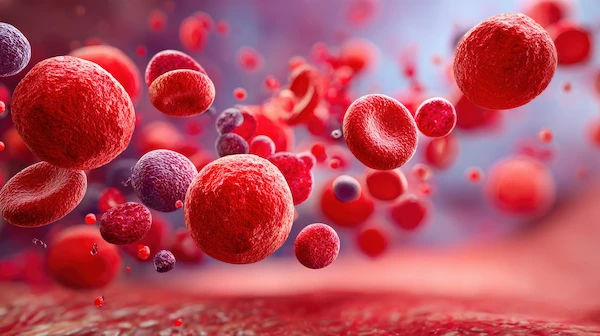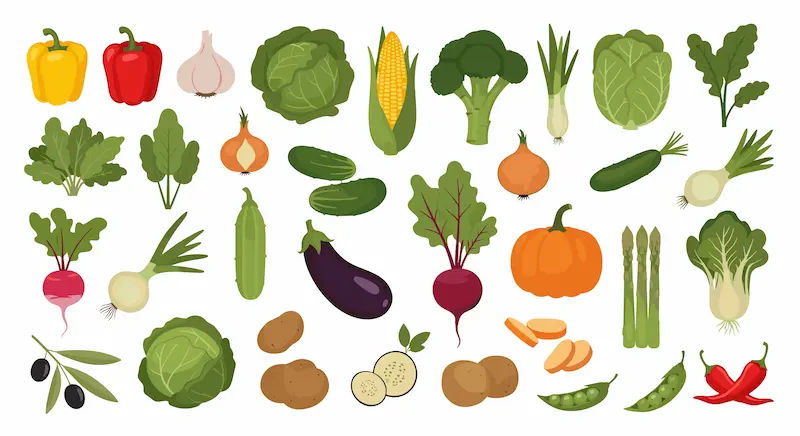Your Essential Guide to Common Summer Sickness
Stay healthy this season with our essential guide to common summer sicknesses. Learn about heat-related illnesses, foodborne infections, and tips to prevent and manage the most frequent health issues during hot weather.

Written by Dr. Dhankecha Mayank Dineshbhai
Reviewed by Dr. Rohinipriyanka Pondugula MBBS
Last updated on 13th Jan, 2026

Summer is a season of sunshine, vacations, and outdoor fun. But the soaring temperatures and high humidity also create a perfect breeding ground for a variety of illnesses. From the mild inconvenience of prickly heat to the severe danger of heatstroke, understanding these common summer sicknesses is your first step toward prevention and effective treatment. This comprehensive guide will walk you through the most frequent health issues that arise during the hotter months, detailing their symptoms, causes, and, most importantly, how you and your family can avoid them. We’ll equip you with practical knowledge to identify warning signs, implement effective home care, and know precisely when it’s time to seek professional medical advice. Let’s ensure your summer is remembered for all the right reasons.
Dehydration: The Root of Many Summer Problems
At the core of many common summer sicknesses lies a simple yet critical issue: dehydration. When the mercury rises, our bodies sweat more to maintain a stable internal temperature. This process, while essential for cooling us down, leads to a rapid loss of water and electrolytes—minerals like sodium and potassium that are vital for muscle function and other processes. Many people don't drink enough fluids to compensate for this loss, leading to dehydration. This condition isn't just about feeling thirsty; it can be the starting point for more serious complications like heat exhaustion and can exacerbate other illnesses.
Recognising the signs of dehydration is crucial. Early symptoms often include thirst, dry mouth, and reduced urine output that is dark yellow in color. As it progresses, you might experience fatigue, dizziness, headache, and confusion. In children, watch for additional signs like no tears when crying, sunken eyes, and unusual sleepiness or irritability.
Effective rehydration strategies go beyond just drinking water. While plain water is good, when you're significantly dehydrated, you need to replenish electrolytes as well. Oral rehydration solutions (ORS) are excellent for this purpose. You can also opt for coconut water or diluted fruit juices. The key is to drink fluids consistently throughout the day, not just when you feel thirsty. A good rule of thumb is to monitor your urine color—aim for a light, pale yellow.
Heat-Related Illnesses: From Exhaustion to Stroke
When the body's cooling system is overwhelmed by heat, a spectrum of illnesses can occur, ranging from mild heat exhaustion to life-threatening heatstroke. These are among the most serious common sicknesses in summer, particularly for outdoor workers, athletes, the elderly, and young children.
Heat Exhaustion vs. Heatstroke: Knowing the Difference
Understanding the difference between heat stroke and exhaustion is critical, as the response for each is different.
Symptoms of Heat Exhaustion
Heat exhaustion is the body's warning sign. Symptoms include:
- Heavy sweating
- Cold, pale, and clammy skin
- Fast, weak pulse
- Nausea or vomiting
- Muscle cramps
- Tiredness or weakness
- Dizziness and headache
- Fainting (syncope)
Symptoms of Heatstroke (A Medical Emergency)
Heatstroke is when the body's temperature regulation fails completely. This is a medical emergency. Symptoms include:
- A high body temperature (104°F or 40°C or higher)
- Hot, red, dry, or damp skin (sweating may have stopped)
- Fast, strong pulse
- Throbbing headache
- Confusion, agitation, or slurred speech
- Loss of consciousness (coma)
First Aid and Immediate Response
For heat exhaustion, move the person to a cool place, have them sip water, and apply cool, wet cloths to their body. If symptoms worsen, last longer than an hour, or you suspect heatstroke, seek emergency medical help immediately. While waiting for help for a heatstroke victim, move them to a cooler place and use cool cloths or a cool bath to lower their temperature. Do not give them anything to drink.
Consult Top Specialists
Food Poisoning and Stomach Infections
Picnics and barbecues are summer staples, but they also present a prime opportunity for food poisoning. Bacteria like Salmonella and E. coli multiply much faster in warm temperatures. A dish left out in the sun for just an hour can become a breeding ground for harmful pathogens.
Common bacterial culprits thrive on poorly refrigerated dairy products, mayonnaise-based salads, undercooked meats, and poultry. Symptoms of food poisoning typically include nausea, vomiting, stomach cramps, diarrhea, and fever, often appearing within hours of consuming contaminated food.
The best treatment for food poisoning is often rest and hydration. Focus on sipping clear fluids and eating bland foods like toast, bananas, and rice once vomiting subsides. However, if symptoms are severe—such as bloody diarrhea, signs of dehydration, high fever, or symptoms lasting more than three days—it's crucial to consult a doctor. If your condition does not improve after trying these methods, book a physical visit to a doctor with Apollo24|7 for further evaluation.
Tips for safe food handling are your best defense: keep raw and cooked foods separate, cook meats thoroughly, refrigerate perishables promptly, and don't leave food out for more than two hours (one hour if it's above 90°F/32°C).
When to Seek Professional Medical Help
While many common summer sicknesses can be managed at home, it's vital to recognize the red flags that warrant professional care. You should seek immediate medical attention if you or a loved one experience:
Symptoms of heatstroke (high fever with altered mental state).
- Signs of severe dehydration (no urine for 8 hours, extreme dizziness, confusion).
- Food poisoning symptoms that are severe or persistent (blood in stool, inability to keep liquids down for 24 hours).
- A sunburn that is severe, covers a large area, or is accompanied by blistering, fever, chills, or confusion.
Any illness where symptoms suddenly worsen.
If symptoms persist beyond two weeks, consult a doctor online with Apollo24|7 for further evaluation. For conditions requiring diagnostic tests, such as persistent gastrointestinal issues that might need a stool culture, Apollo24|7 offers convenient home collection for tests to simplify the process.
Conclusion
Knowledge is your most powerful tool against the array of common sicknesses in summer. By understanding the risks—from dehydration and heatstroke to food poisoning and water-borne diseases—you can take proactive steps to prevent them. Prioritize staying cool and hydrated, be vigilant about food safety, and listen to your body’s signals. Summer should be a time of joy and relaxation. A little precaution and awareness can ensure that your most memorable moments are the ones spent having fun in the sun, not dealing with a preventable illness. Stay informed, stay prepared, and have a wonderful, healthy summer season!
Consult Top Specialists
Consult Top Specialists

Dr. Harshendra Jaiswal
General Physician/ Internal Medicine Specialist
12 Years • MBBS , MD (General medicine)
Kolkata
108 DHANA DHANVANTARI Clinic, Kolkata
(25+ Patients)

Dr. Vivek D
General Physician
4 Years • MBBS
Bengaluru
PRESTIGE SHANTHINIKETAN - SOCIETY CLINIC, Bengaluru

Dr. Dhanraj K
General Physician/ Internal Medicine Specialist
25 Years • MBBS, MD Internal Medicine - Osmania Medical College, Hyderabad
Hyderabad
Apollo Hospitals Jubilee Hills, Hyderabad
(425+ Patients)

Dr Syed Mateen Pasha
General Physician
2 Years • MBBS
Bengaluru
PRESTIGE SHANTHINIKETAN - SOCIETY CLINIC, Bengaluru

Dr. Ajay K Sinha
General Physician/ Internal Medicine Specialist
30 Years • MD, Internal Medicine
Delhi
Apollo Hospitals Indraprastha, Delhi
(200+ Patients)
Consult Top Specialists

Dr. Harshendra Jaiswal
General Physician/ Internal Medicine Specialist
12 Years • MBBS , MD (General medicine)
Kolkata
108 DHANA DHANVANTARI Clinic, Kolkata
(25+ Patients)

Dr. Vivek D
General Physician
4 Years • MBBS
Bengaluru
PRESTIGE SHANTHINIKETAN - SOCIETY CLINIC, Bengaluru

Dr. Dhanraj K
General Physician/ Internal Medicine Specialist
25 Years • MBBS, MD Internal Medicine - Osmania Medical College, Hyderabad
Hyderabad
Apollo Hospitals Jubilee Hills, Hyderabad
(425+ Patients)

Dr Syed Mateen Pasha
General Physician
2 Years • MBBS
Bengaluru
PRESTIGE SHANTHINIKETAN - SOCIETY CLINIC, Bengaluru

Dr. Ajay K Sinha
General Physician/ Internal Medicine Specialist
30 Years • MD, Internal Medicine
Delhi
Apollo Hospitals Indraprastha, Delhi
(200+ Patients)
More articles from General Medical Consultation
Frequently Asked Questions
What is the most common illness in summer?
While many are prevalent, dehydration is arguably the most common, often acting as a gateway to other issues like heat exhaustion and worsening conditions like food poisoning.
How can I tell if my summer cold is actually allergies?
A key difference between a cold and summer allergies is the mucus; allergies typically cause clear, watery discharge and are accompanied by itchy eyes and sneezing fits. Colds often involve thicker, yellow/green mucus and may include a sore throat and body aches. Allergies also persist as long as you're exposed to the allergen, while a cold runs its course in 7-10 days.
What are the best home remedies for severe sunburn?
For soothing severe sunburn treatment, take cool (not cold) baths, apply aloe vera or a fragrance-free moisturizer, and stay hydrated. Over-the-counter hydrocortisone cream can reduce inflammation. Avoid products with petroleum, which can trap heat, or benzocaine, which can irritate the skin.
How long does a typical stomach infection from food poisoning last?
Symptoms of bacterial food poisoning often appear within 6-24 hours and can last from 24 hours to a week, depending on the pathogen. The most acute phase (vomiting, diarrhea) usually subsides within 1-3 days.
Are children more susceptible to summer sickness?
Yes, children are at higher risk for dehydration and heat illness because they have a larger surface area relative to body mass, adjust to heat more slowly, and often depend on adults to provide them with fluids and remind them to take breaks.




